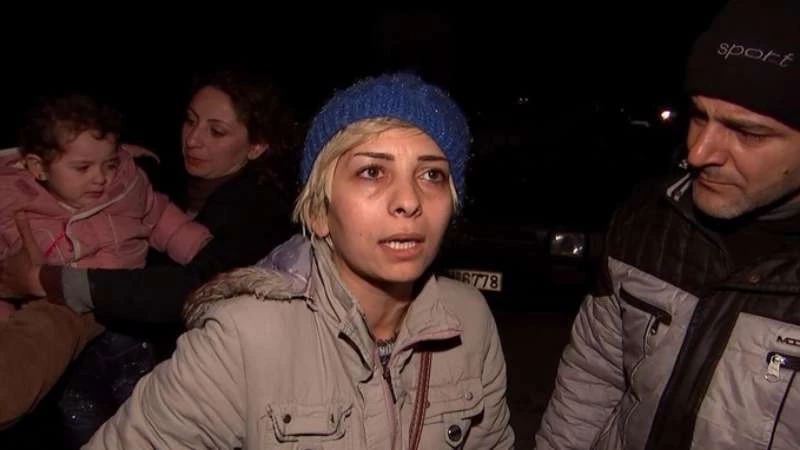She was scrabbling out of a dinghy on a beach on the Greek island of Lesbos, her husband and seven-year-old son beside her, they were terrified and bewildered.
Fifty people had crammed into the tiny boat, making the treacherous journey from Turkey in the pitch dark.
As they drew close to land, we could barely see them, but their screams were haunting - they knew many who’d attempted the crossing before them had not survived.
I asked Sawsan why she had put her child’s life at such risk. She didn’t hold back with the answer.
"We’re running from Assad, we’re running from ISIS, we’re running from everyone," she screamed at me.
"No-one is helping us, we have no choice but to do this. Do you think I would choose to risk the life of my child?"
She had no idea where the road would take her - she had only the possessions she could carry. Her old life was finished, all she wanted was a place of safety. A fresh start.
Fast forward nine months, and a smiling Sawsan welcomed me into the room she now calls home in a small town outside Frankfurt.
More than 30 people are crammed into one house, each family sharing a room.
It’s hardly the last word in luxury, but given what they’ve been through, it’s paradise.
Sawsan is a smart young woman - fluent in English, she’s learning German fast and hopes to find work here as soon as her asylum papers are cleared.
But in the few short months she’s been here, things have changed. Attitudes have hardened, the welcome is no longer so warm.
Applauded into railway stations last summer, refugees like her are now treated with suspicion by many Germans. A series of terror attacks across Europe have made this country question the wisdom of allowing so many people in.
Sawsan can understand the fears, she knows more than most about the creeping claustrophobia of a life lived under threat. But it makes her angry, too.
"This word, refugee" she tells me "will follow us forever. I don’t know if the people here will let my son study with their children. I really worry about all that. It’s not our fault, you can’t blame us for the actions of a few crazy people."
It’s hard to argue with that. All Sawsan wants is a life at peace, her basic human right. She dreams that her son may study here and grow up a proud citizen of his new adopted country.
She wants him to have the same chances our children have. It doesn’t seem too much to ask.



التعليقات (0)